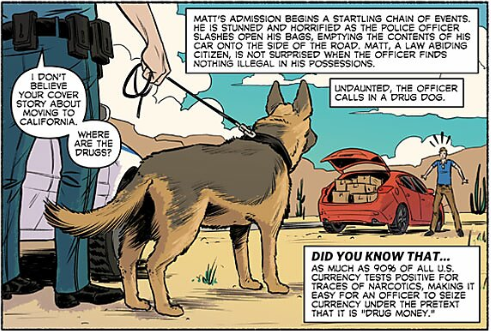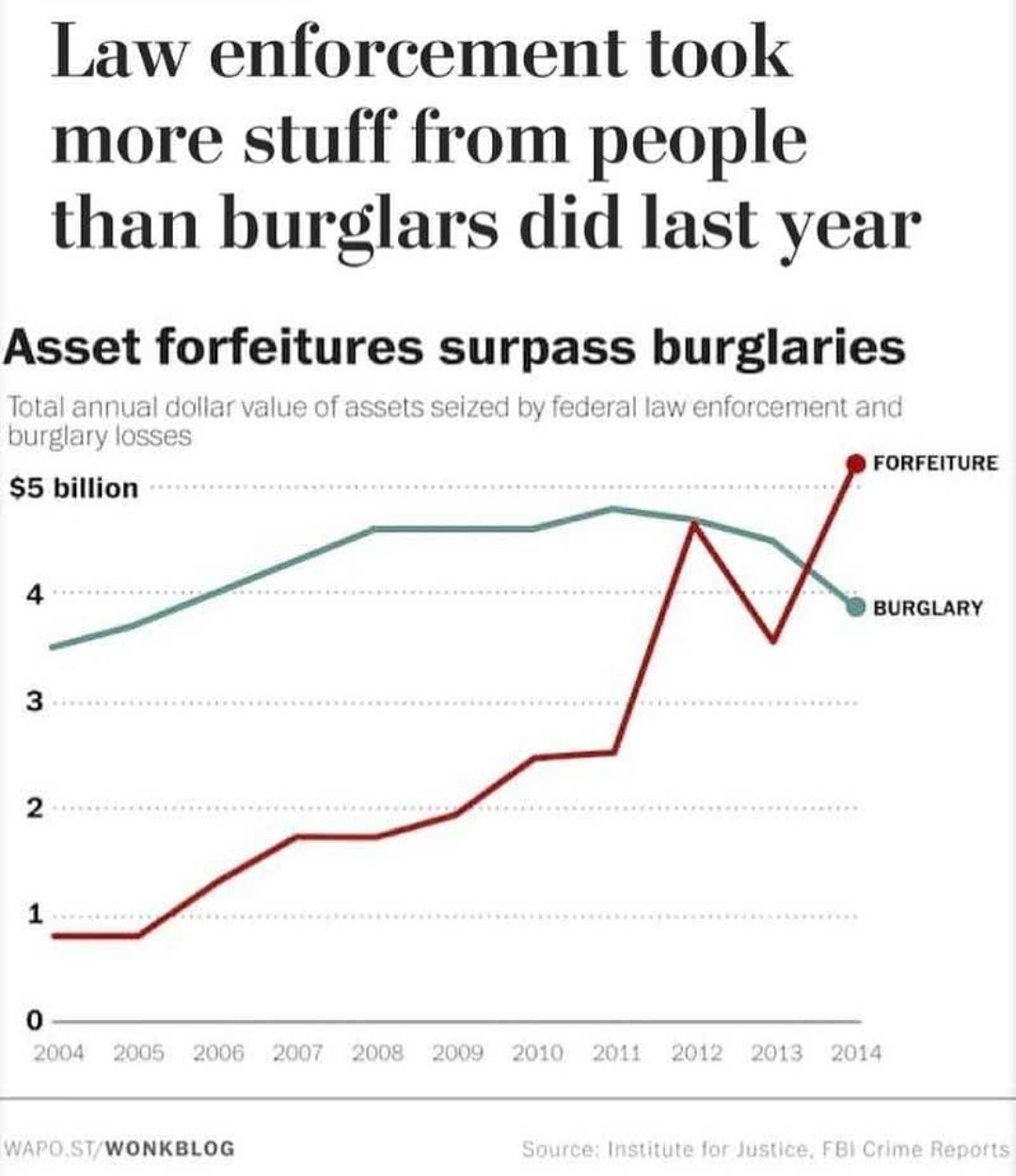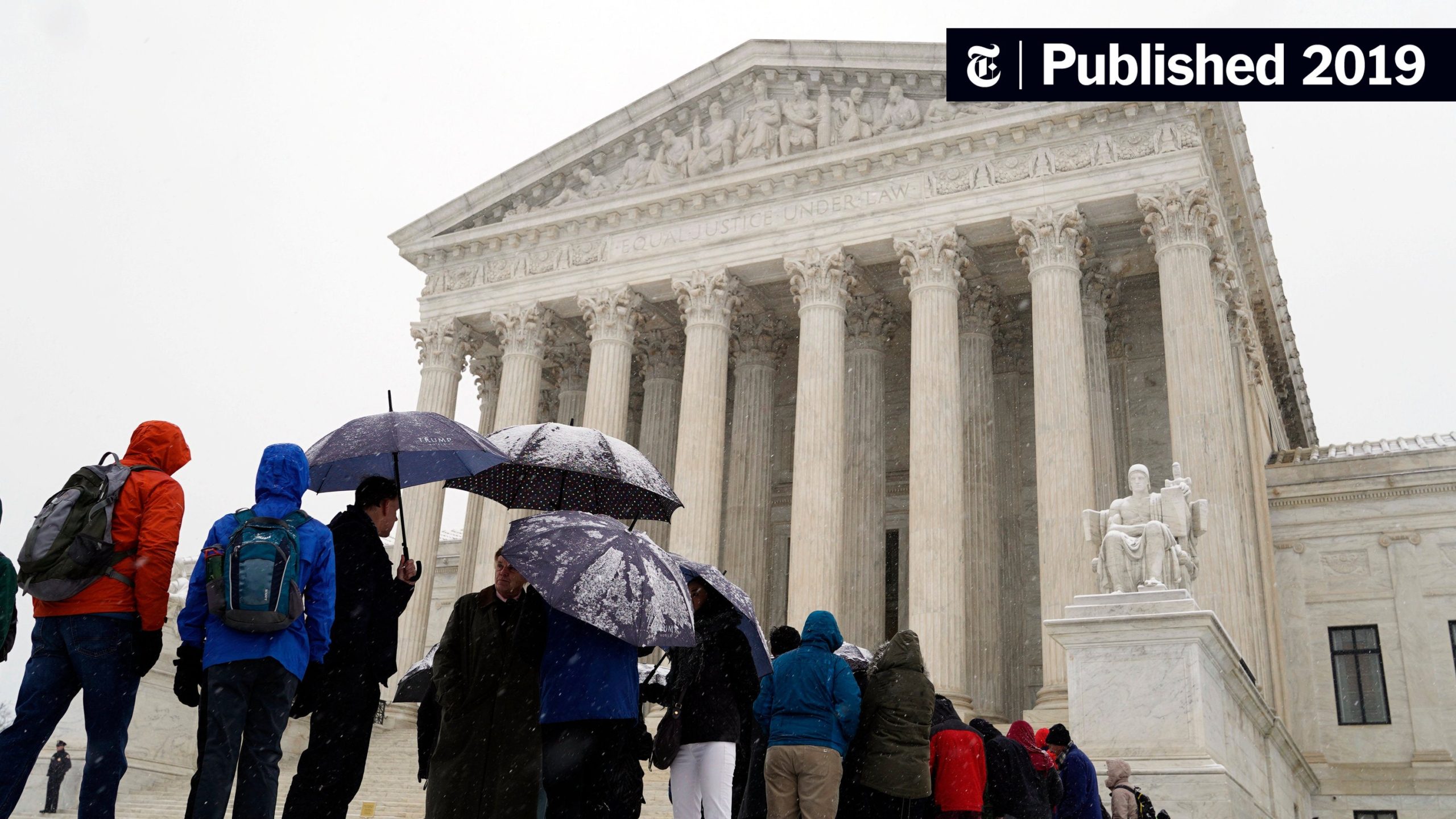North Dakota Takes A Bite Out Of Civil Asset Forfeiture
On May 2, 2019, North Dakota took a major first step in civil asset forfeiture reform. Governor Doug Burgum signed House Bill 1286, which goes a long way in limiting law enforcement agencies’ ability to arrest people, seize their property, and keep what they’ve seized even in cases where no crime can be proven.
Over the years, civil asset forfeiture has gained notoriety in criminal justice reform circles. Generally speaking, civil asset forfeiture has been a proven tactic in the so-called “War on Drugs” to target the assets of affluent drug lords.
However, as witnessed with countless other government programs, civil asset forfeiture has devolved into a money grab for corrupt law enforcement bureaucracies.
Scott Shackford of Reason points out that civil asset forfeiture “has instead grown into a massively corrupt mechanism where police agencies pull people over or raid their houses on whatever pretext the cops can muster.” According to the Reason writer, “North Dakota’s rules were particularly bad for the citizens.”
In fact, North Dakota is one of the worst states when it comes to civil asset forfeiture. It received a dishonorable F grade in the Institute for Justice’s “Policing for Profit” report. The only other state that received such an abysmal score was Massachusetts.
According to Shackford, “North Dakota’s rules were particularly bad for the citizens.” Before HB 1286 received the Governor’s signature, law enforcement just needed to have probable cause in order to make a property seizure attempt. Law enforcement agencies could even keep up to 100 percent of the properties they seized as long as it was worth less than $200,000.
With HB 1286 in place, police must obtain a conviction before seizing people’s assets. However, there are exemptions if the person is dead, has been deported, has disappeared, or has abandoned their property.
Although the bill sponsor, State Representative Rick Becker, was disappointed with the way the bill was watered down, he is considering putting a question on the ballot in 2020 that would strengthen the rules for asset forfeiture. Nonetheless, HB 1286 is a good first step.
The Supreme Court recently issued a ruling that limits states’ power to levy excessive fines and use civil asset forfeiture to take property.
There’s no question civil asset forfeiture is a promising fight for liberty activists. In times when it appears that government is growing non-stop, small victories like these give us a glimmer of hope. It’s also another reminder that state legislatures should never be ignored because these are the places where we can make the most change.
Related:
What is Civil Asset Forfeiture? | For The Record: “Seized” | Critics of Civil Forfeiture Call for Reforms | Top Legal Tips for Business Owners | Warrant of Arrest in Rem | Asset Forfeiture Real Estate Defense | What Happens If the Government Sells Seized Assets? | When Innocence Does Not Help: How to Communicate about Civil Asset Forfeiture | Police Say Seizing Property Without Trial Helps Keep Crime Down. A New Study Shows They’re Wrong. | “They’re Taking My Stuff!” – Now on Video! | Federal Equitable Sharing – Asset Forfeiture Program | Dirty money: How asset forfeiture is returning billions to the federal coffers | SB 98: Changes to Civil Asset Forfeiture | Civil Asset Forfeiture (ACLU) | Libertarian Comes Close To Understanding Civil Asset Forfeiture | Fourth Amendment Seizures Defense | Administrative Forfeiture Defense Strategies | Sentence First; Verdict Afterwards: Civil Asset Forfeiture Ruins Lives on Basis of Allegations | Civil Rights & Forfeiture Defense | The World of Civil Asset Forfeitures | Senate bill aims to rein in IRS on asset forfeitures | Why Civil Forfeiture Is Controversial in California | Sen. Lee Questions ATF Nominee on Civil Asset Forfeiture | JUSTICE MANUAL 9-119.000 – Asset Forfeiture Approval, Consultation, And Notification Requirements | Police Seize Weapons in Civil Asset Forfeiture Case




![102530953-RTR4TL5M[1]](https://www.rucci.law/wp-content/uploads/2023/12/102530953-RTR4TL5M1.jpg)

![gerado-serrano-tx-eagle-pass-DRW_5061-scaled[1]](https://www.rucci.law/wp-content/uploads/2023/12/gerado-serrano-tx-eagle-pass-DRW_5061-scaled1.jpg)


![854081161001_5616033620001_5616024865001-vs[1]](https://www.rucci.law/wp-content/uploads/2023/12/854081161001_5616033620001_5616024865001-vs1.jpg)

